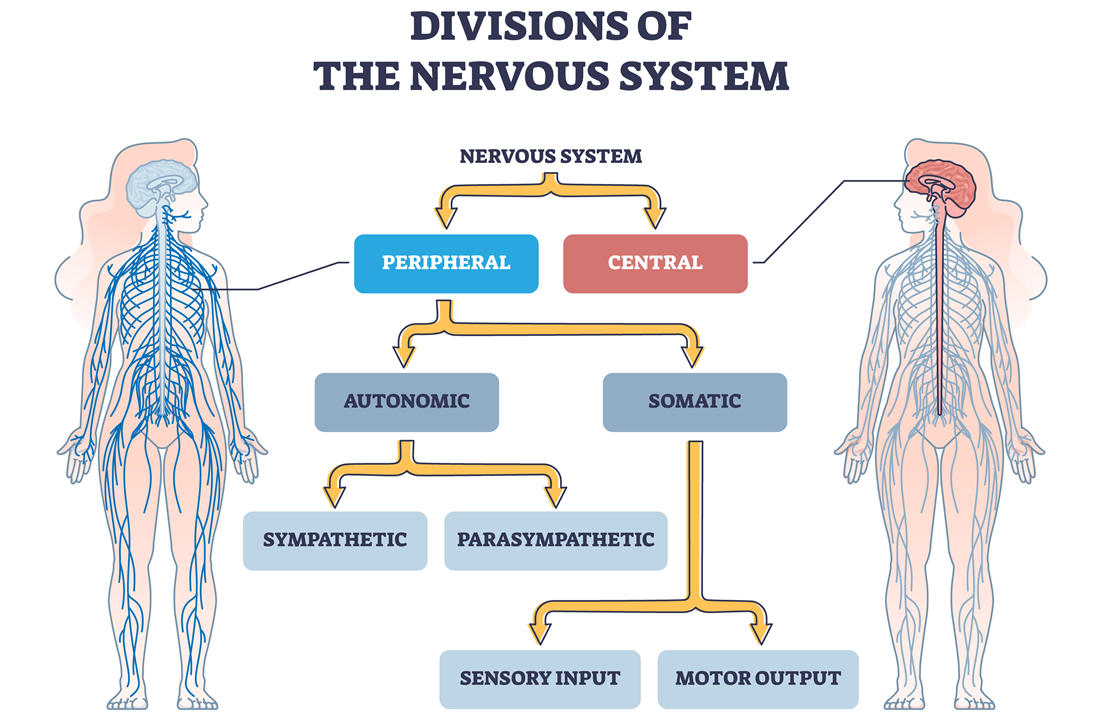This Spotlight Series Event is brought to you in partnership with Official USABP Educator Bodynamic Institute USA.
You'll learn how to help your clients become more resourced in both setting limits and being able to deeply take in what people give to them (i.e., love, appreciation, words, perceptions, objects) and allow for deeper connection and intimacy.
Description
In this webinar we are going to focus on differences in working with the autonomic nervous system (ANS) and the voluntary nervous system (VNS). We will look at what derails both systems, and how the repair for each differ. We will address why to use one or the other, and how they complement but do not replace each other. We will do this by focusing on something impacted both in trauma and developmental disruptions - which is the ability to set limits and a complementary skill of pulling in and holding close.
Both of these psychological skills are impacted in trauma, in that it diminishes a person’s ability to sense and express their boundaries and limits. This usually makes it harder to fully take in and hold close. It is often easier to teach these skills by addressing how the disruption emerge in one’s daily life, and by building resources in the voluntary nervous system. This can immediately help the person in their current relationships. You can then go into working the trauma with more resources that were developed in a less charged situation.
Many of the issues people bring to therapy are the result of developmental disruptions. These disruptions do not happen in a dramatic way, but result from the daily drip, drip, of mis-attuned connection with our caretakers. These effect the motor, mental and psychological abilities coming on line for the child at that time. They are imprinted in the voluntary nervous system, in the elasticity of psychologically related muscles, and in the corresponding implicit understanding in the mind.
Learning these somatic skills can also ease the overwhelm of some trauma work, in that your body has previously had the experience of limit setting with no terrible consequence. Additionally, using the VNS in limit setting may build an internal structure that may not have been established working only with the autonomic nervous system.
Main Points of Workshop
- Differences between working with the Autonomic nervous system versus the Voluntary nervous system
- Imprints of relational support and disruptions, the “drip, drip, drip” effect of ongoing interactions, are imprinted in the muscles relating to developmental movements and psychological abilities emerging at that time.
- The abilities and ruptures of the developmental stages appear in the unconscious behavior of adults, and can be directly accessed using developmental movements when working on a specific issue
- By learning how to use your body to set limits, related to a present-day issue, we can bring forth the needed abilities that were either undeveloped and given up (a kind of parasympathetic state), or held back (a sympathetic response).
- Once someone can set limits, it becomes easier to take in and hold others close. This is another developmental imprint held in your muscles
- Supporting these new competencies by affirmatively relating to the themes, emotions, feeling and memories from this earlier time, create a new relational experience
- Case presentations: from both trauma and developmental ruptures. Learning the differences how they complement but do not replace each other.
- EXPERIENTIAL WORK you can teach your clients
Participants will learn
- Understanding the difference between working with the Autonomic nervous system (ANS) and the Voluntary nervous system (VNS)
- Learn the advantages of working with the VNS
- Learn the difference between body imprints of giving up, a hypo response and holding back, a hyper response, in developmental disruption
- Learn specific somatic ways on setting limits and being able to take in and hold close, and what gets in the way of these basic skills
- Understand how these skills are impacted both in trauma and developmental disruptions, and how using the VNS can prepare someone to more easily process the ANS responses.
Click HERE to access: Making Somatic Psychotherapy More Effective.
This class will include case presentations and experiential work.

This event will have an "overtime." The presenter will be available after the formal event ends for discussions on this topic or any other you are interested in discussing.
Check back for updates to this event.
This event will be recorded and available for members.
Non-members who register for this event also have access to this video. This course will not include CEs. Check out our other listed events in 2023 and beyond.
References
Fosha, D. (2000). The transforming power of affect. New York, NY: Best Books.
MacNaughton, I. (2004). Body, breath, and consciousness. Berkeley, CA: North Atlantic Books.
Marcher, L., and Fich, S. (2010). Body encyclopedia. Berkeley, CA: North Atlantic Books.
Bentzen, M., Bernhardt, P., Isaacs, J. (1995 -1997). Waking the body-ego – Parts 1-4. Journal of Energy and Character, Vols. 26-28.
Rothschild, B. (2017). The body remembers: Volume 2. New York, NY: North Atlantic Books.
Porges, S. (2018) Polyvagal theory in therapy. New York, NY: W. W. Norton & Co.
Selvan, R. (2022) The Practice of Embodying Emotions: A Guide for Improving Cognitive, Emotional, and Behavioral Outcomes. Berkeley, CA: North Atlantic Books
Brantbjerg, M. (2020) Widening the Map of Hypo-states: a methodology to modify muscular hypo-response and support regulation of autonomic nervous system regulation, Copenhagen, Denmark. Body, Movement and Dance in Psychotherapy https://doi.org/10.1080/17432979.2019.1699604

Our featured presenter will be:
Anne Isaacs, MSW, LCSW
Founder and Director of BodynamicUSA
Certified Bodynamic Analyst and Trainer
Specialty: Working with adults and groups – dealing with developmental issues. This includes working with relational ruptures and repair throughout development and how they affect our sense of self and our relationships.
ANNE SPECIALIZES IN:
Helping you to recognize and become the best of yourself by:
Healing early developmental and attachment disruptions that impact your adult life and relationships
Using your body to support, change and solidify new resources
Being fully present with you so you can be fully present with yourself
Anne feels it’s a privilege to be moved by the depth in her students and clients. She is very skilled in perceiving how your body holds patterns of protection and limitation. She will help you find new ways to function with more vitality. She is touched by the wonder of what happens when both she and her clients and students surrender to the process of contact and change.
Anne has been a therapist and teacher for 35 years. She is grateful to her many teachers, including, Lisbeth Marcher, Mariana Bentzen, Merete Branbtjerg, Mary Main, Eric Hesse, Diana Fosha, Julie Henderson, Tony Richardson, Bairo Tulku, for the profound wisdom they have shared with her. She is thankful for her smart and loving husband, Joel, daughter, Vida, and the many friends who are such a rich part of her life.
WORK HISTORY
1993-2021 Trainer of Bodynamic Analysis
1977-2021 Private Practice, Los Angeles
1990-2021 Bodynamics Somatic Developmental Psychology primary modality, Attachment Disruptions, Repair of Ruptures
1997-2004 Founding board member of United States Association of Body Psychotherapy
1997-2004 Program and conference planner of first 3 USABP conferences
1974-1977 Developer of community mental health program in a rural county of SE Arizona
TEACHING
1993-2021 Trainer of Bodynamic Analysis
1977-2004 Esalen Institute, yearly 5 day workshops
1990-2019 Presenter at numerous USABP conferences
2004-2010 Adjunct Faculty at SBGI
2006 Presenter at JFK/CIIS symposium
2010 Presenter at JFK conference on trauma and attachment
EDUCATION
1973 MSW, University of Denver,
1976-1978, Radix Institute
1978-1983, study of many somatic modalities
1985-1991, Bodynamic Institute 5 years training
1999-2011, Focus on trauma-many modalities
2000-2011, Focus on Attachment-many UCLA conferences and reading
2003-2011, Student of Julie Henderson, Zapchen, a body based Buddhist practice
2008-2011, Systems Centered Therapy, trainings and on-going group consultation
2010, 3 week training with Mary Main and Erik Hesse, AAI
2011 AEDP core training for one year, Ron Frederick
2011 AEDP immersion training, 2 weeks, Diana Fosha
2018-2021 Training and experiential work with Stages International, Terri O Fallon and Kim Barta
PUBLICATIONS:
Isaacs, Anne and Isaacs, Joel. (2020). Making Somatic Psychotherapy More Effective, International Body Psychotherapy Journal, Vol 18,, Number 2, Fall/Winter
Agenda
- Welcome
- USABP Announcements
- Presentation, Demo & Experiential
- Q & A
- Overtime discussion (after the event formally concludes)

About the Spotlight Organization
Bodynamic Institute USA, The Bodynamic system of Seven Developmental Stages is a very detailed and accurate description of childhood psychological and somatic development, and the links between them. It describes both what healthy development looks like and what happens when there are developmental disruptions. It contains precise knowledge that we have learned to teach in a user friendly format. This knowledge often allows you to resolve client issues in the context of the developmental stage in which the disruption occurred. And this leads to quicker and more lasting integration of new behaviors into a client’s life.
READ MORE

SUBSCRIBE
Get invited to events like these, updates on free resource materials and more. Subscribe to the USABP Highlights Newsletter.
Sign Up
Check back as new information on our events happen regularly and updates are ongoing.
These exclusive webinars are brought to you by the USABP and its proud educational and training institute member organizations.
These live webinars are for Psychologists, Social Workers, MFTs. Counselors, Somatic Practitioners, Body Worker and other Health Professionals.

IMPORT NOTICE!
Registration is in three steps. Get the details below.
Non-members see special message* to you below.
Members you must be logged in to be able to access free registration.

*NON-MEMBERS SAVE NOW:
Non-members are better off to join the USABP. For a little more money paid as a member - instead of an event registrant - you can participate in 12 plus upcoming webinars FREE and get access to our library of training - lectures. Plus get our International digital and/or printed version of our International Peer Reviewed Journal and much more.

ABOUT OUR EVENTS
Our events often include demonstrations, video and slide presentations, experiential exercises, Q & A discussions, insights from attendees, presenter shares about their personal journey and inspirations, and much more.
These courses content levels serve introductory or beginning level; intermediate level; or advanced level.
Please cancel prior to 24 hours before the course starts. For questions or concerns, phone 202-466-1619.
Disability Access - If you require ADA accommodations please contact our office 30 days or more before the event. We cannot ensure accommodations without adequate prior notification.

DON’T FORGET!
REGISTRATION is in three steps:
1) Register first on the USABP website (click the register button on this page), and then
2) Register at Zoom too. Use the Zoom link that we will email to you after you register with USABP (click the register button on this page to begin registration).
3) Once you register with Zoom. Zoom will send you your login link.
We look forward to seeing you at this premiere event.
